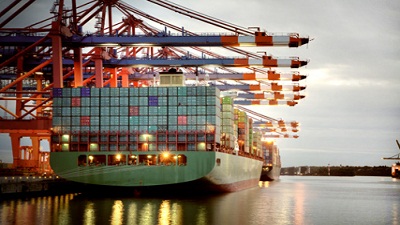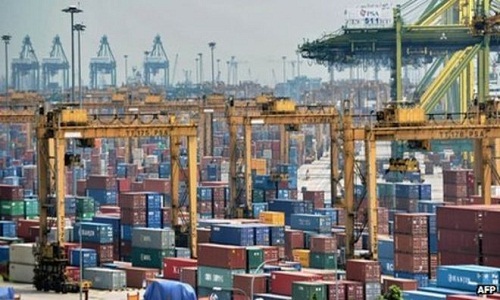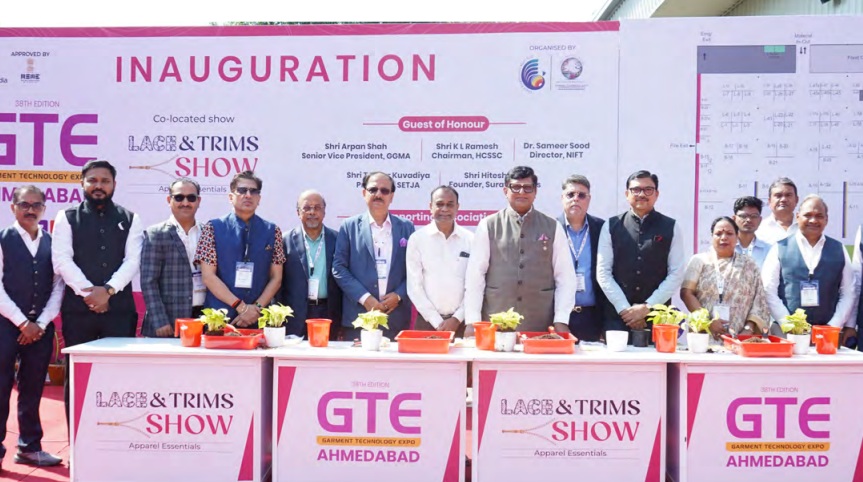FW
Korean owned factories in Myanmar have been cited for labor violations. Workers are under pressure in Korean-owned garment factories. Many factories have been found to be non-compliant, particularly concerning laws on working hours and overtime. Most of these Korean factories supply to international brands.
Almost 30 per cent of the factories surveyed failed to abide by the maximum 16 hours weekly overtime limit. Nearly two thirds of workers surveyed (62 per cent) reported being unable to refuse working excessive hours. Almost two-third of workers (63 per cent) said their take home pay is not enough to live comfortably. About 30 per cent of workers are provided pay slips only in English or Korean, another direct breach of Myanmar law which requires pay slip information to be provided in Burmese.
Only 40 per cent of workers have signed employment contracts; many did not have their own copy. Despite a legal requirement that an employer with more than 30 employees should establish a Workplace Coordinating Committee, only 14 per cent of Korean garment factories – all of which had more than 30 employees – have one. Other findings cover discrimination against trade union representatives, medical leave, maternity rights, harassment, child labor and working conditions including fire safety.
The textile industry in Pakistan wants protection from the invasion of subsidised textile products. It wants a 15 per cent regulatory duty to be immediately imposed on synthetic yarns and fabrics meant for domestic consumption.
The textile sector in Pakistan makes up 57 per cent of the country’s total exports. It wants payment of refunds, drawback on local taxes and levies, product focus market schemes, export refinance, availability of all types of raw materials, cotton and manmade fiber at competitive prices and cotton research through a public-private partnership. Above all it wants investment to flow into the sector so that the objective of doubling exports can be reached.
Pakistan’s trade policy has identified four main points – product sophistication and diversification (research and development, value addition, and branding), market access (enhancing share in existing markets, exploring new markets, trade diplomacy and regionalism), institutional development and strengthening (restructuring, capacity building, and new institutions), and trade facilitation (reducing cost of doing business, standardization, and regulatory measures) to boost the economy.
A significant number of textile mills in key manufacturing hubs of the country have shut down because of their inability to compete with low cost rivals of the likes of Bangladesh and Vietnam.
Hong Kong’s Texhong Textile Group us one of the world’s largest core spun yarn suppliers. In the year ended December 31, 2015, Texhong Textile’s total sales increased by approximately 10.5 per cent, reaching a record high as compared with the same period last year.
Continuing its expansion strategy, Texhong is set to increase production capacity through self-development and mergers and acquisitions. It had a total of approximately 2.20 million spindles and 572 looms at the end of 2015.
The company plans to develop a textile industrial chain platform in Vietnam. It has also acquired part of a jeans wear manufacturing group’s workforce as well as equipment in China and Cambodia. This will help the company in the form of invaluable experience for setting up the jeans wear business in Vietnam.
With its two yarn projects in Vietnam and China expected to begin in the second and third quarters of this year, spindle capacity will further increase by approximately 28 per cent to 2.81 million spindles — 1.57 million spindles in China and 1.24 million spindles in Vietnam. The company is expected to begin its second phase of construction of a grey fabric factory, a dyeing factory and a garment factory in Vietnam.
www.texhong.com/home/home.htm?languageno=en
India’s denim is witnessing one of the fastest growth as an apparel fabric segment in India, up from 700 million meters in 2010 to 1.2 billion meters in 2015. Yet, there is a gap of 300 million meters in India for the denim industry to tap its full export potential. The denim industry is growing at a compounded annual growth rate of 13 to 15 per cent in a year when overall apparel growth rate is being pegged at three to five per cent this fiscal, down from 12 to 15 per cent for the past couple of years.
Denim makes up 35 per cent of total textile exports from India and is expected to rise to 45 per cent of total exports by 2020; production is also expected to increase to 1.5 billion meters by 2020. While the total denim capacity in the country is about 1.2 billion meters per annum, the utilisation is at around 900 million meters per annum, of which 250 million meters would be exports.
The Indian denim industry is gradually looking to increase its share of exports. As an apparel segment, denim’s growth has been more in the domestic market than in exports.
Welspun India expects 22 per cent Ebitda growth in Q4. Continued demand in the key US market, increase in towel or bed linen capacity and realisation gains from currency depreciation may help drive 14 per cent sales growth in the fourth quarter. Ebitda margin is expected to remain similar to third quarter levels at 27 percent (up180 basis points year on year) as higher input costs (in particular, cotton) are offset by gains from currency depreciation and operating leverage.
Welspun India is a home textiles player. Tailwinds from product innovation and new segments (entry into hospitality segment, foray into wearable technologies) may help drive CAGR over 18 per cent. Capacity addition in financial year ’18 through processing lines vs. fully integrated capacity may result in lower capex per unit addition.
Although gross margins would moderate from their third quarter levels due to higher cotton prices, Welspun expects 27 per cent Ebitda margin in the fourth quarter, similar to the third quarter, due to gains from currency depreciation. Increase in capacity utilization levels and likely capacity addition in financial year ’18 (contingent on demand remaining healthy) should aid sales growth. There may be a possible 20 to 25 per cent capacity addition in financial year ’18.
www.welspunindia.com/
Truong Van Cam, Deputy Secretary General of the Vietnam Textile and Apparel Association (Vitas) feels, many textile & garment companies are leaving the market because of unstable policies. Speaking at a workshop held by the World Bank (WB) and the Vietnam Chamber of Commerce and Industry (VCCI), he recalled how a garment company wanted to import a printer to make products for export and it took them six months to obtain import license.
Cam said on Thoi Bao Kinh Te Saigon, that this was because the Decree 60 stipulated that business owners must have junior college’s degree to be able to import printers. A business in Nam Dinh province, which employs 2,000 workers, said it has to pay VND40-50 billion additionally every month because of the required higher minimum wage and trade union fee. The State’s policies need to be designed in a way to encourage investors to do business and stay in the market, commented Cam.
Anther analyst speaking at the workshop observed that the government seems to be too optimistic about opportunities to be brought to the textile and garment sector by TPP.
Pakistan lags behind competitors in reliability, political stability and lack of diversity, despite low prices in most apparel product categories says a World Bank (WB) report. The report titled, ‘Apparel employment, trade, and economic development in South Asia,’ states many buyers avoid Pakistan because of the security situation and hence entrepreneurs have to travel to Dubai to meet them, which complicates sourcing.
The report observed that Pakistan is cost competitive in most product categories, but it is not a top performer in any of the export categories. One major problem is a lack of product diversity, with the country almost entirely dependent on cotton products and trouser exports. Other problems are reliability, compliance, and political stability and safety, especially Foreign Direct Investment (FDI). Pakistan also has a large labor pool, but productivity is hurt by the limited availability of good sector-specific training institutes and gaps in technical, design, and middle management skills.
The report maintains that Pakistan has a fast-growing apparel sector that accounts for 19 per cent of its exports, and firms are competitive with global exporters in terms of prices. The country ranks fourth in terms of value ($4.2 billion) with the same global market share (1.2 per cent) as Sri Lanka.
"A BSI Global Supply Chain Intelligence Report cites increasing number of terrorism incidents as major supply chain risk. The report is based on data from BSI’s Supply Chain Risk Exposure Evaluation Network (SCREEN), which provides continuous evaluation across 22 proprietary risk factors and 204 countries. BSI’s 2015 SCREEN data and analysis reveals a clear picture of the changing global threat landscape and how this varies by country, continent, and industry sector."

A BSI Global Supply Chain Intelligence Report cites increasing number of terrorism incidents as major supply chain risk. The report is based on data from BSI’s Supply Chain Risk Exposure Evaluation Network (SCREEN), which provides continuous evaluation across 22 proprietary risk factors and 204 countries. BSI’s 2015 SCREEN data and analysis reveals a clear picture of the changing global threat landscape and how this varies by country, continent, and industry sector.
BSI’s report noted a number of cross-border issues that threatened supply chains across the world in 2015. This include: damages caused by cargo theft; increased number of terrorism incidents contributed to billions of dollars in losses to global shipping companies; an influx of migrants in Europe that harmed supply chain integrity across the continent; economic downturns in Argentina, Brazil, and China; and issues of political transparency that drove social unrest in Africa and Central America. Extreme weather events, including many attributed to the El Nino phenomenon, caused supply chain disruptions and threatened business continuity in multiple regions. There were also several industries that were plagued by poor enforcement of labour regulations, allowing for significant rates of child or forced labour in Argentina and India, among other nations.
Security concerns

The report said, nearly AUD$30 billion was lost due to cargo theft worldwide in 2015 from a variety of supply chain threats, predominantly driven by security concerns. South Africa has seen a 30 per cent increase in cargo truck hijackings over the last year, with thieves using high levels of violence and switching from targeting only high value goods to also targeting lower value items. Daring vehicle shipment thefts have become increasingly commonplace in China, with a recent series of in-transit vehicle thefts occurring along the busy G45 highway. More sophisticated attacks were observed in India throughout 2015, where criminal gangs masterminded new techniques to steal goods without breaking customs seals to avoid detection – a major risk for companies participating in international supply chain security programs.
Terrorism and supply chain
It further said, in Europe, disruptions in trade caused by the ISIS terrorist group clearly highlighted the link between terrorism and the supply chain. Border controls in France following the November attacks in Paris are estimated to have cost the Belgian shipping industry AUD$4.6 million. Terrorist-linked smuggling rings were also identified to be colluding between Spain and the Middle East, the groups illegally transporting shipments of stolen electronics, drugs, weapons and other contraband. Elsewhere, the Jordanian trucking industry suffered AUD$990 million in lost revenue since conflict began in the Middle East in 2011.
In addition to theft, business continuity-related threats such as extreme weather events and political and social unrest, led to significant losses for individual companies and national economies last year. 2015’s top five natural disasters caused a collective AUD$33 billion of damage to businesses. In 2016, BSI has identified emerging health crises, such as the Zika virus, could also pose a significant threat to the global supply chain and may lead to work stoppages and protests similar to the supply chain disruptions seen in conjunction with the Ebola epidemic.
Labour issues
Coupled with labour unrest and factory strikes have also caused considerable financial damage across the world. Factory strikes in China increased by 58.3 per cent from the previous year due to pay disputes, as factory owners struggled to pay workers due to a slowing economy, leading to protests. The withholding of wages was cited as a major cause in 75 per cent of protests and generated losses of up to AUD$35 million in the footwear industry. Labour unrest is likely to continue in China in 2016, regardless of whether the economy improves.
Numerous cases of child and forced labour were exposed in 2015, highlighting the need for visibility into corporate supply chain to mitigate the risk of human rights abuses. Nearly 80 per cent of Argentina’s textile industry was found to be sourcing from unregulated facilities, where forced, child labour and poor working conditions are common. BSI also noted an increase in the risk of child labour use in India due to the existence of loopholes in labour reforms approved in 2015. In response to these and other recent concerns, European countries and the United States last year moved to pass laws mandating reporting on corporate social responsibility issues in corporate supply chains.
Threat potentials in 2016 include:
The study also listed out certain threat potentials for 2016. These include: Global cargo theft cost estimated to grow by a further AUD$1.3 billion in 2016; increased concerns in China, Germany, India, Mexico, South Africa, and US; continued tensions in South China Sea predicted to lead to further protests and disruptions; conflict in Syria; migrant crisis in EU to lead to port disruptions; EU/Schengen border controls predicted to have far-reaching impact; labour unrest in China, as a slowdown in the economy continues; La Nina and other weather phenomenon; health crises due to Zika and Ebola etc.
Bangladesh is drawing the attention of global buyers for high-end denim. Rising costs in China have created an opportunity for Bangladesh to grab a share of the denim segment. Bangladesh now produces more value-added products. It targets denim exports worth $7billion by 2021, when the country's total garment export is expected to cross the $50 billion mark.
Price is the advantage of Bangladeshi denim makers that helps them retain the top exporting position in the EU and maintain the third position in the US. Global brands have started exploring the sourcing potential of handloom denim fabrics dyed with natural indigo from Bangladesh.
In recent years a few companies in Bangladesh have started cultivating natural indigo and this indigo is mainly used in dyeing high quality, handmade products for high end and luxury markets. Denim made on handlooms is softer than mill made denim, has a unique texture and breathes well and helps feel cool in summer and retain body warmth in winter. Organic cotton and natural indigo dye are used for producing the handloom denim fabric.
Sustainable fashion companies in Germany are working with a company in Bangladesh to produce hand-woven indigo denim fabric.
Adilabad, Telengana, has a huge cotton processing industry. It’s considered to be the single largest cotton trading center in Asia with a turnover of over Rs 5,000 crores. As many as six new cotton ginning factories will be added shortly.
In the last few years, five of the biggest ginning and pressing units in town had to be closed down because of huge losses owing to the recession and the consequence of successive crop failures. This had an impact on the growth of the processing industry. Owing to growing competition and decreased productivity and yields, ginning factories with huge processing capacities had faced bad times over the last few years.
Now things are looking up. Units will get a concession in payment of Value Added Tax (VAT). VAT is subsidised at 100 per cent for a period of five years from the date a mill starts processing operations. New units have smaller processing capacities and hence will be viable as the quantum of arrivals of cotton will suit their needs unlike the closed units which boasted of huge capacities.
In the last few years, the processing industry which was mostly concentrated in Adilabad town and Bhainsa saw an expansion in terms of spread in area. Processing units opened almost everywhere in the district in order to capture the local produce.












